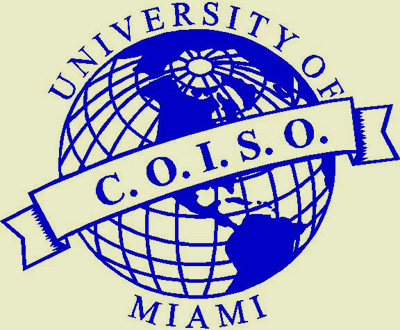The University of Miami ranks highly in national standards for diversity, but that does not mean that the process of adjustment is an easy one for the 3,750 international students and scholars who attend the school each year. With that in mind, UM’s Counseling Center decided to create a support group for international students to discuss issues such as homesickness and language barriers.
The group usually meets on Tuesdays from 5-6 p.m. at the Counseling Center and does not follow a set structure. Students can drop in even if they are not regular clients of the Counseling Center. The topic of the day is developed depending on who is there and what kind of challenges attendees have on their mind, explained Patricia Arena, a clinical psychologist at the Counseling Center who is spearheading the initiative.
“My goal is to have a very welcoming and no pressure place where international students can come and talk about whatever is on their mind,” Arena said. “The adjustment process can be a challenge, so this is a place where people can talk and gain support from other people going through something similar.”
The need for the support group is apparent by the number of attendants they’ve received, she said. A number of international students come for individual therapy, and Arena explained that sharing the experience with students experiencing similar issues can be powerful.
“My own experience being an international student back then, when I was an undergraduate studying in France, was that I had to adjust to the culture and find support,” she said. “It’s important to have a group or a safe place, and there is a lot of literature on adjusting that supports the theory.”
While having a support group is already a step in providing a safe environment for international students, freshman Leyi Zhang, a communications student originally from China, believes that international students also need to take individual action to overcome their personal challenges.
“Talking about our problems isn’t the way of resolving them,” Zhang said. “People who have a hard time adjusting to the new environment should definitely try to get out of their comfort zones instead of just talking about it.”
Zhang added that it was her first time at the support group and she was not still experiencing trouble, so she did not plan on returning.
One way for international students to become involved is joining the Council of International Students and Organizations (COISO), which, like the Counseling Center, also aims to help international students integrate into American culture.
“One of the biggest problems we have is that we’ve been told that UM is very diverse, but ethnicities are always grouped together and they stick within their own groups, which I understand being an international student myself, of course I want to find my people and hang out with them,” said junior Avisha Gopalakrishna, vice president of internal affairs for COISO. “But I think it’s very important that a group like this can help students break barriers between cultures and realize that you don’t have to just group yourselves, there are so many things out there and different ethnicities go through the same problems of being an international student.”
The international student support group has been active for a year, but according to Arena, the Counseling Center is looking to make it a more prominent service.
“The main thing of course is confidentiality, but anyone who’s had an experience or has an interest would be welcome,” Arena said. “Drop-in groups fluctuate in numbers depending on what’s going on in the semester, but if there is one person or 10, we’ll hold the group either way. Our focus is to create that supportive environment.”
The Counseling Center also offers individual therapy, psychiatric services, anxiety management groups, stress management groups and crisis services. For more information visit www.miami.edu/counseling-center.






